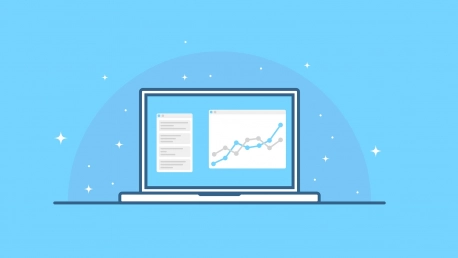Artificial Intelligence (AI) has been a game-changer in the realm of data analysis. These advanced tools enable users of varying expertise to delve into intricate and voluminous datasets with ease. This shift has broadened the scope of data analysis, making it a day-to-day decision-making tool across a variety of industries. We are now witnessing a democratization of data analytics, where insights are becoming accessible to a broader audience. AI’s impact in data analytics is indeed a turning point, foreshadowing a future where AI seamlessly blends into our decision-making processes.
The Emergence of User-Friendly AI Analysis Tools
Tools like Julius AI are at the forefront of making complex data analysis more user-friendly. They offer natural language prompts and interfaces that do not require expert data science skills. These tools aim to make data analysis more inclusive, allowing for a wider engagement with data. They simplify the data analysis process, making it a fundamental skill for business professionals and novice analysts.
Microsoft Power BI: Seamlessly Integrating AI with Business Intelligence
Microsoft Power BI integrates AI with business intelligence, allowing users to handle large datasets, create custom machine learning models, and design interactive dashboards. Its integration with the Microsoft suite makes it invaluable for businesses aiming to elevate their data analysis. Power BI helps organizations make data-driven decisions that crucially affect strategy and operations.
No-Code Tools: Empowering Amateurs with Advanced Analysis
Platforms like Polymer and Akkio democratize machine learning and predictive analytics by offering no-code solutions. They enable users to create complex predictive models without any coding. This is a significant leap towards making predictive analysis available to everyone. These tools foster a new genre of data analysts who combine their industry knowledge with machine learning.
Text Analysis with AI: The Advantage of MonkeyLearn
MonkeyLearn makes processing large volumes of textual data more efficient by utilizing AI for data classification and extraction. It saves time and enhances productivity, as it does not require advanced coding. MonkeyLearn represents the broader trend towards efficient data processing methods, aiding businesses in extracting valuable insights from text.
Tableau’s Visual Analytics: Simplifying Data Understanding
Tableau is transforming the field of data visualization by converting complex data into compelling visual stories. With its VizQL technology, Tableau enables users to create data visualizations easily. The tool democratizes data analysis by making it accessible and engaging for users from different backgrounds. Tableau exemplifies the new generation of data tools that are reshaping our interaction with large datasets.









